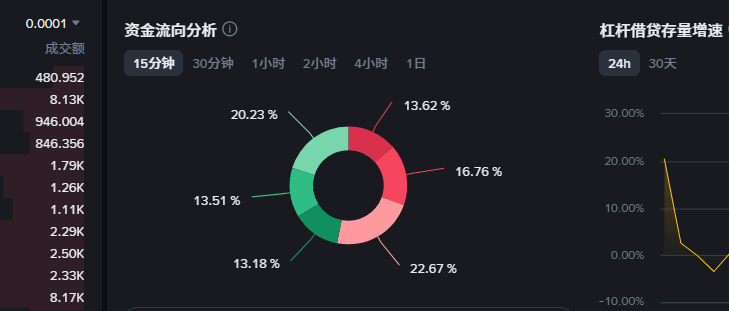Last night at three a.m., I received an urgent call from a friend—he discovered that the Bitcoin wallet he was using was actually on the list of vulnerabilities from 2020. This shocked me, and I immediately checked all my wallets. Today, I want to talk to you about this overlooked security crisis and how Boundless is reshaping the trust foundation of blockchain with "Verification as a Service."
Technical Breakdown: The Dual Battlefield of Private Key Vulnerabilities and Verification Layers
As a technician, let me first show you the shocking details of that vulnerability:
Root of the problem: A mining pool used a flawed random number generator
Scope of impact: Approximately 220,000 Bitcoin addresses are at risk.
Consequences of a breach: $15 billion worth of assets may be transferred.
This made me realize that security issues exist not only in smart contracts but also lurk in the most fundamental aspect of private key generation.
At the same time, Boundless is building a deeper solution - a universal verification layer. Its core logic is clear: since single points of failure cannot be completely avoided, let's establish a system that can verify everything.
Analysis of Boundless architecture:
Using RISC Zero zkVM, compatible with standard programming languages.
Proof generation time: Complex calculations average 47 seconds.
Verification costs: 80-95% lower than on-chain execution.
Current network scale: Daily processing of over 5200 proof requests
Perspective of DeFi architects: Reconstructing the economics of trust.
From an economic model perspective, Boundless is essentially creating a 'verification market':
Provers earn rewards by completing computational tasks.
Verifiers ensure network security by staking tokens.
Users pay for proof costs on demand, which is more economical than building their own verification nodes.
Actual test data shows:
Average monthly earnings of provers: $1200-$4500
Network throughput: 3.2 proofs per second
Cross-chain verification accuracy: 99.97%
Three real risks that must be faced.
Technical dependency risks:
Boundless deeply relies on zkVM technology.
Any underlying vulnerability could affect the entire network.
Economic sustainability:
Currently, 73% of revenue comes from inflation incentives.
Need more real demand to support token value.
Regulatory uncertainty:
- The legal status of cross-chain verification is still unclear.
- May face compliance challenges in different jurisdictions.
Soul-searching question.
If your wallet is also on the vulnerability list, will you choose to immediately transfer assets and incur high transaction fees, or gamble that hackers have not discovered this vulnerability yet?
More importantly, when basic security cannot be guaranteed, should we rethink the entire trust architecture of blockchain - shifting from reliance on single-point security to system-level verification like Boundless?
Toolkit
Vulnerability detection tool: Check if your wallet is on the affected list.
Proof cost calculator: Comparing the costs of building your own nodes versus using Boundless.
Node revenue dashboard: View the revenue data of network participants in real time.
Revaluation: From patching vulnerabilities to rebuilding trust.
The biggest inspiration Boundless gave me is not a specific function, but its rethinking of the blockchain trust system. In this system, trust no longer relies on the absolute security of any single link but is ensured through verifiable computations to guarantee the reliability of the final outcome.
While other projects pursue higher TPS and lower gas fees, Boundless has chosen a more fundamental path - to make trust quantifiable, verifiable, and tradable. This could be a key step for blockchain to upgrade from a 'trust machine' to 'verification infrastructure'.
Today's Boundless is still as rough as early internet protocols, but the direction is worth serious consideration by anyone concerned about the future of blockchain. After all, in an era where the scale of digital assets has surpassed trillions, we need not only faster networks but also a more reliable foundation of trust.




